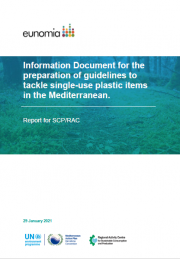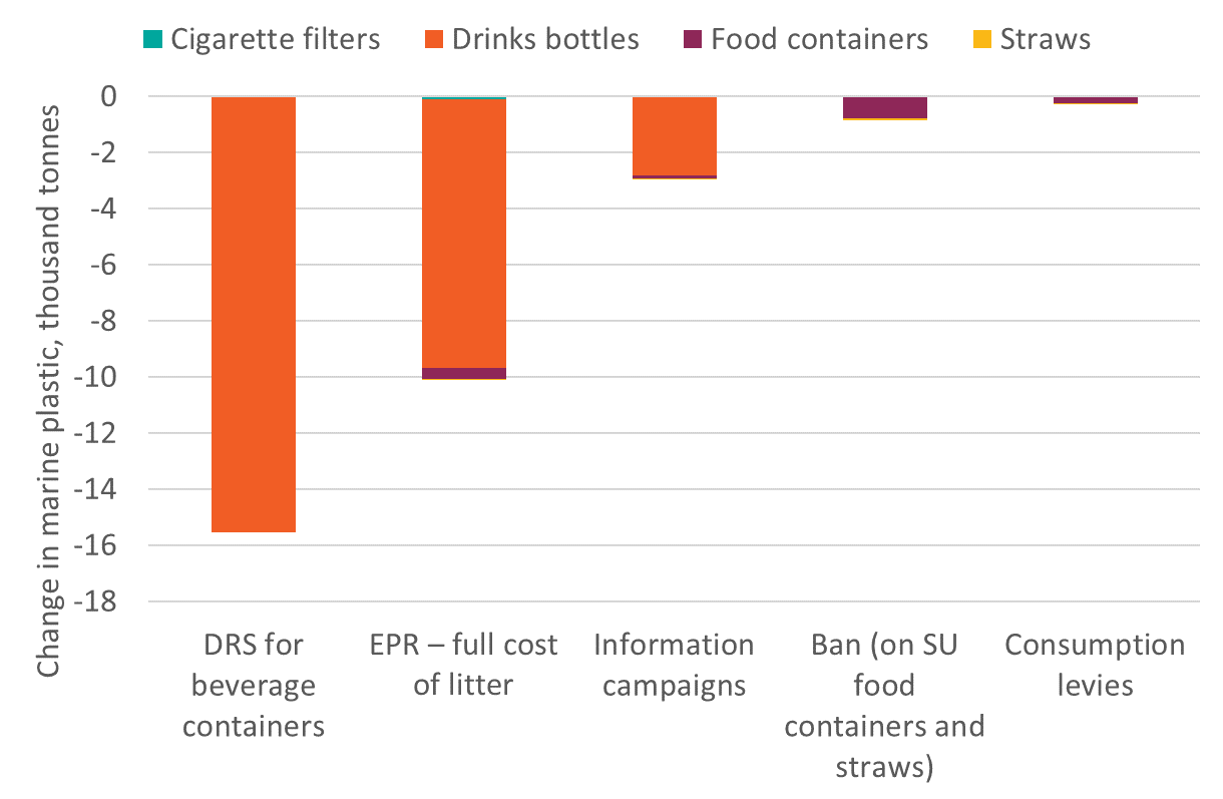

Subscriu-te al SCP News
SCP/RAC publishes the Information Document for the preparation of guidelines to tackle single-use plastic items in the Mediterranean

- SCP/RAC commissioned this study-report to Eunomia Research & Consulting to acquire baseline information on single-use plastic products in the Mediterranean, in preparation of regional guidelines on the matter.
- The Regional Guidelines on measures to tackle Single-Use Plastic items, being developed by SCP/RAC as requested by the Contracting Parties to the Barcelona Convention (PoW 2020 – 2021), will support the implementation of the Regional Plan on Marine Litter Management.
- The Information Document is a key element in the WES training webinars, which will allow for building trainees’ capacities on sound policy making.
Overall, plastics are estimated to account for around 95% of the waste in the open sea, on the seabed and on beaches across the Mediterranean. In the Mediterranean, it is estimated an annual plastic leakage of 229,000 tonnes, made up of 94% macroplastics and 6% microplastics. As requested by the contracting parties of the Barcelona Convention, the MAP programme includes activities related to the preparation of guidelines on measures to reduce/prevent the negative impacts associated with single-use plastic items (SUPs) in the Mediterranean region.
The purpose of this information document is to support the development of these policy guidelines, by presenting information on the production, consumption, end of life management and impacts associated with selected SUP items across the Mediterranean region at present and illustrating the potential effects of different policy measures to reduce these impacts in the Mediterranean context.
The research and analysis presented in this report focuses on key SUPs in four Mediterranean countries, namely: beverage bottles, including caps and lids; food containers (bowls, clamshells, trays); straws and cigarette filters in Egypt, Morocco, Montenegro and Greece.
Through a long list of policy measures presented in the main report the following list was selected to model environmental and socioeconomic impacts:
- Information campaigns
- Extended Producer Responsibility (EPR) - full cost coverage of litter collections to be covered by producers
- Deposit Refund Scheme (DRS) for beverage containers
- Consumption levies - predominantly for food packaging
- Bans
Findings include:
- Deposit Refund Schemes lead to the greatest reduction in (littered) marine plastics reaching the environment (by weight). Together with EPR, the effect is the equivalent to preventing the leakage of approximately 1,700 truck-loads of plastic waste per year into the environment.

- In terms of greenhouse gas emissions, DRS schemes show the greatest environmental benefit. This emissions saving is equivalent to the emissions produced by approximately 240 thousand citizens (equivalent to 0.16% of the total population of the four countries modelled).
- Concerning the economic impacts of the measures modelled, measures targeting consumption of SUP products (bans and consumption levies) can lead to either an increase or loss in sales, depending on the type of product that consumption is switched to. All measures lead to a loss for producers of plastic products, and net gains are only made by producers where the increased turnover for producers of alternative products is greater than this lost revenue.
- DRS schemes have the most significant positive impact on employment
The overall recommendations to consider for the policy guidelines, cover: improving waste collection/ separation – particularly along coastal areas and waterways; the use of bans and levies of SUP product to maximize effect; ensuring implementation of DRS for beverage containers to support increased recycling rates, reduced littering of deposit-bearing containers, a reliable supply of high-quality recycled material, reduced greenhouse gas emissions and air pollutants; and increased employment.
In summary, identifying the SUP items of concern and developing policy measures to address these is the direction to reduce plastic leakage into the environment alongside implementation in any given Member State.
DESCÀRREGUES
Altres documents:














